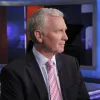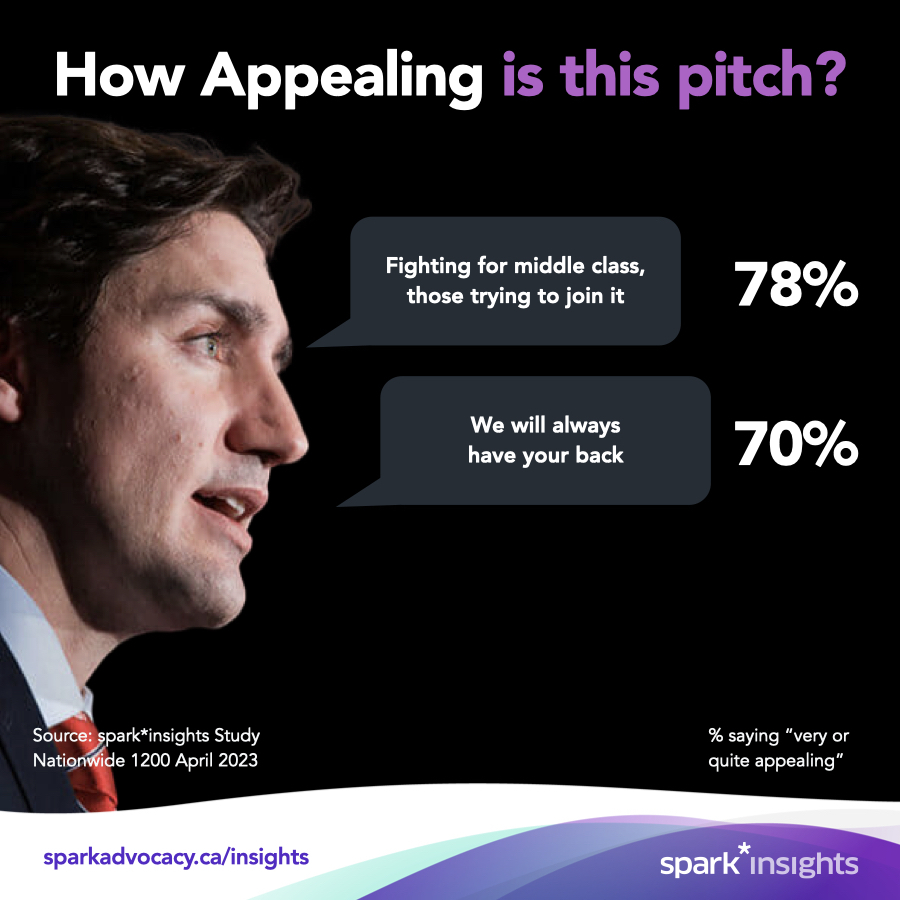With men under 45, often considered one of the most important subgroups the Conservatives and Liberals are battling over, the “Middle class” theme is strong, but only slightly stronger than “Powerful paycheques” and “Cap spending”. Among urban voters, a key battleground in every election now, “Cap spending” is the most resonant theme, followed by “Middle Class”, and “Powerful paycheques”.
The first thing that pops from all this data is that Conservatives have solid messages when they talk about capping spending, cutting waste, ending inflationary taxes and helping make more powerful paycheques. The gatekeepers theme is less productive, and probably comes off a bit too much of a culture war battle cry for the average voter who is not so dialled into politics.
The Liberals can take some comfort in the fact that their original hit “middle class” still has legs. But there are cautionary notes too. Some Conservative themes are highly competitive and could rally voters who are a little bit more inclined to want a change, including voters on the centre and left of the spectrum, urban voters and younger men. These are not polarizing messages - if anything, they have unifying potential.
Also, revealed in our release last week, just 37% believe Mr. Trudeau “has a plan for the future that will help them”, while 42% believe Mr. Poilievre does. After being in office for almost 8 years, if most people don’t believe the PM has a plan to fight for the middle class and those hoping to join it, the resonance of the theme may be more theoretical, than practical. In other words, people might like the idea, but wonder if Mr. Trudeau can (further) deliver on it.
The test for an opposition challenger sometimes isn’t so severe. People may believe it is possible to cap spending, cut waste and end inflationary taxes and think that an incumbent won’t do it, but a challenger might.
What’s the bottom line?
The Liberals have been less than successful to date in defining Pierre Poilievre on their preferred terms. Meanwhile the Conservative leader is mapping out some themes that are more rallying and less polarizing than some might have expected and compared to his rhetoric during his leadership run. The unknown is whether he will pitch increasingly broad themes, or switch back towards the base rallying messages more often than is productive.
For the Liberals, the challenge is not only to create a contrast by telling people why they should worry about Mr. Poilievre, but to deal with the fact that public is not very sure what the Liberals are focused on, despite having had years and all the tools that incumbency offers, to paint a clear picture of the future.
(Sample size 1200, Nationwide, April 7-9th
2023, online, field work by Abacus Data)






